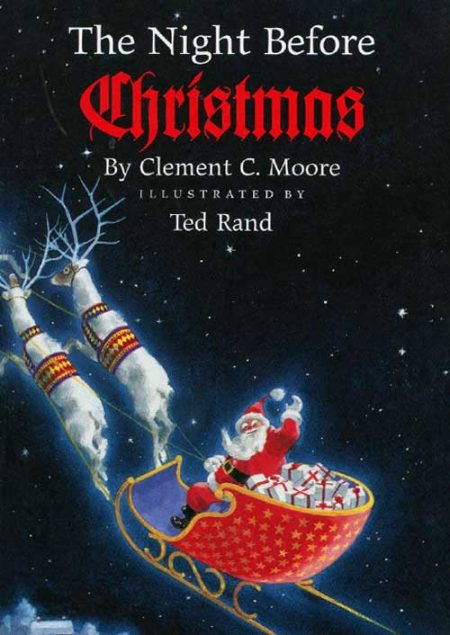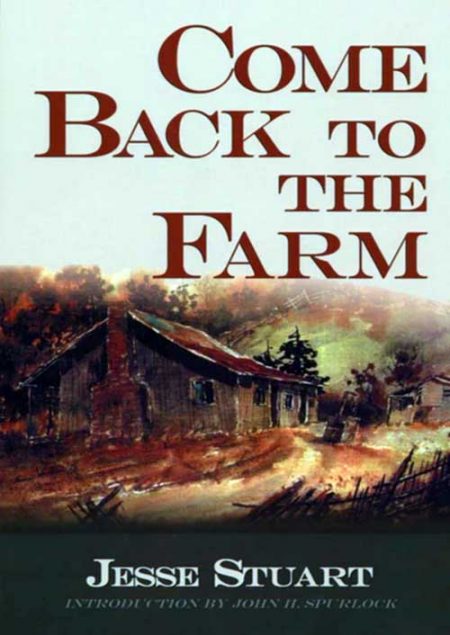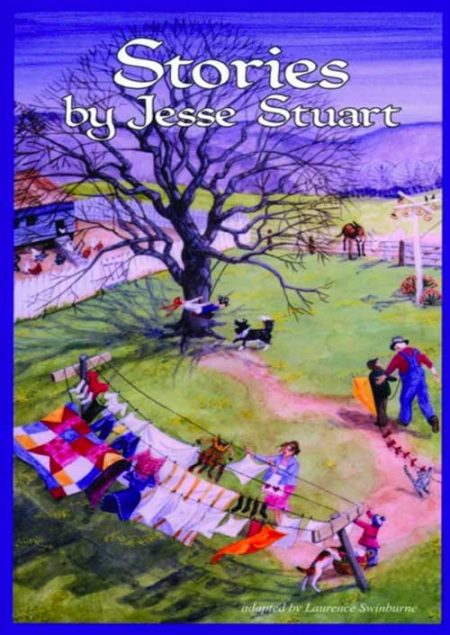-
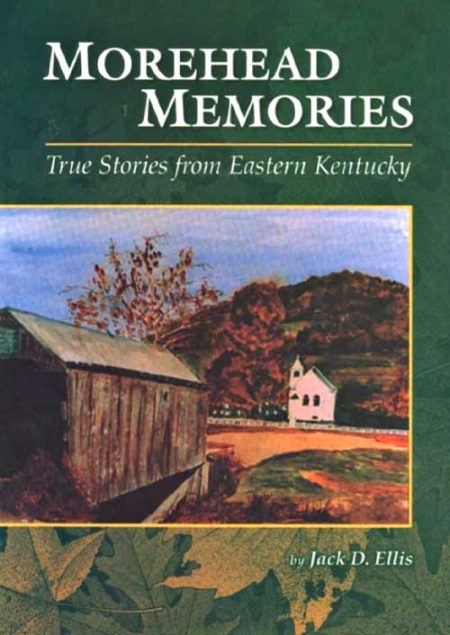 Morehead Memories recalls the struggle of a city and a county to advance from a raw, violent, feud filled region into a modern educational, commercial, cultural and medical center in Eastern Kentucky. The author uses interviews, documented research and personal memories to vividly tell the story of the people, places, institutions and events through which this marvelous transformation was accomplished. HARDBACK By Jack D. Ellis
Morehead Memories recalls the struggle of a city and a county to advance from a raw, violent, feud filled region into a modern educational, commercial, cultural and medical center in Eastern Kentucky. The author uses interviews, documented research and personal memories to vividly tell the story of the people, places, institutions and events through which this marvelous transformation was accomplished. HARDBACK By Jack D. Ellis -
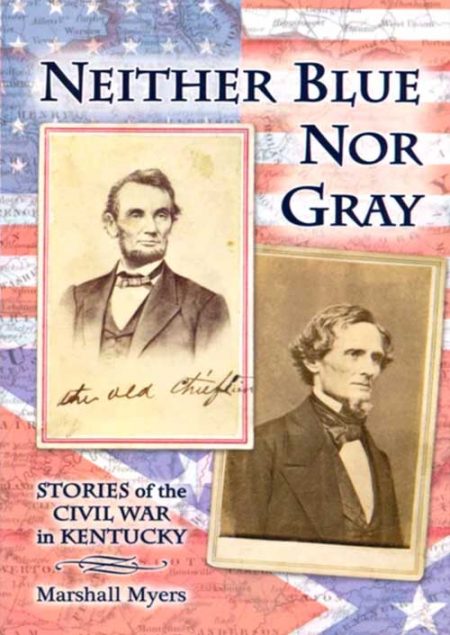 The Civil War affected the daily lives of almost everyone in the Commonwealth of Kentucky, a slave holding state that chose not to secede from the United States. Here are the untold stories of lesser known combatants or the folks back home who suffered in so many ways from the ravages of war. Seventeen chapters range in topics from interviews with former slaves to an examination of Mary Todd Lincoln's family's military involvement in the war. SOFTBACK By Marshall Myers
The Civil War affected the daily lives of almost everyone in the Commonwealth of Kentucky, a slave holding state that chose not to secede from the United States. Here are the untold stories of lesser known combatants or the folks back home who suffered in so many ways from the ravages of war. Seventeen chapters range in topics from interviews with former slaves to an examination of Mary Todd Lincoln's family's military involvement in the war. SOFTBACK By Marshall Myers -
Out of stock
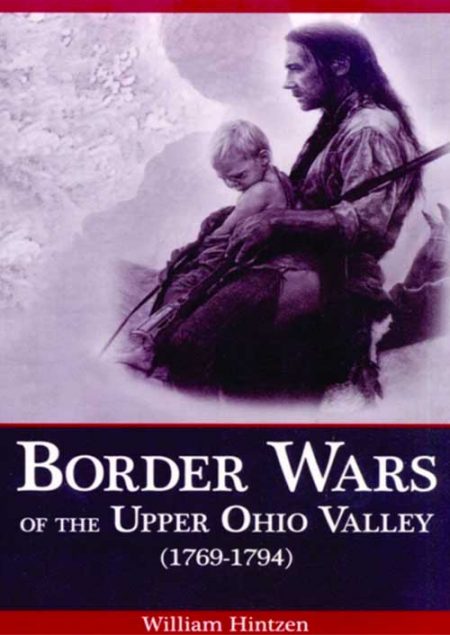 Border Wars of the Upper Ohio Valley is the story of the Trans-Allegheny movement in the quarter-century from 1769-1794. It embraces the area of the present United States from western Pennsylvania to the Mississippi, and from the Great Lakes southward into Tennessee. The story of this westward movement begins with the emigration of the Zane family from the South Branch of the Potomac River, from their home near Moorefield, in present Hardy County, West Virginia, to the mouth of Wheeling Creek in the panhandle of that state, and concludes with Anthony Wayne’s victory over the confederated Indian tribes at Fallen Timbers. William Hintzen’s book brings back the days of Daniel Boone, the Zane family (founders of Wheeling), Simon Kenton, Lewis Wetzel (Death Wind, as the Indians knew him), the 1777 siege of Fort Henry, the Girty brothers, Sam McCo9lloch, Betty Zane’s dash for gunpowder, the remarkable Wetzel family, Sam Brady, George Rogers Clark and Mad Anthony Wayne’s final victory at Fallen Timbers. By William Hintzen
Border Wars of the Upper Ohio Valley is the story of the Trans-Allegheny movement in the quarter-century from 1769-1794. It embraces the area of the present United States from western Pennsylvania to the Mississippi, and from the Great Lakes southward into Tennessee. The story of this westward movement begins with the emigration of the Zane family from the South Branch of the Potomac River, from their home near Moorefield, in present Hardy County, West Virginia, to the mouth of Wheeling Creek in the panhandle of that state, and concludes with Anthony Wayne’s victory over the confederated Indian tribes at Fallen Timbers. William Hintzen’s book brings back the days of Daniel Boone, the Zane family (founders of Wheeling), Simon Kenton, Lewis Wetzel (Death Wind, as the Indians knew him), the 1777 siege of Fort Henry, the Girty brothers, Sam McCo9lloch, Betty Zane’s dash for gunpowder, the remarkable Wetzel family, Sam Brady, George Rogers Clark and Mad Anthony Wayne’s final victory at Fallen Timbers. By William Hintzen -
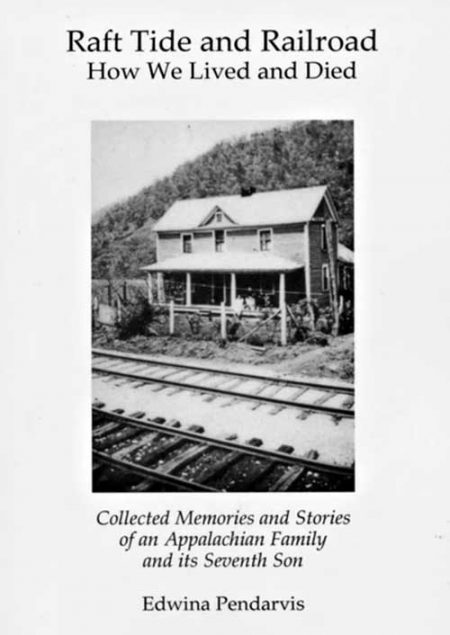 In this family history, “Raft Tide and Railroad: How We Lived and Died — Collected Memories and Stories of an Appalachian Family and Its Seventh Son,” Appalachian author, poet, and editor Dr. Edwina Pendarvis, was guided by sage advice from a grandmother, Jet Johnson, known only to her through family stories and photographs. Not long before Johnson was murdered, she asked one of her sons to note the strength of a bundle of twigs – as opposed to an individual twig – and see it as a metaphor for family strength – a metaphor originated by an earlier Appalachian – the warrior Tecumseh. In “Raft Tide and Railroad,” the author has preserved her family’s history and recognized its strength through accounts that span seven generations of experiences in Virginia, Kentucky, and West Virginia from the early 1800s to the present. SOFTBACK VERSION By Edwina Pendarvis
In this family history, “Raft Tide and Railroad: How We Lived and Died — Collected Memories and Stories of an Appalachian Family and Its Seventh Son,” Appalachian author, poet, and editor Dr. Edwina Pendarvis, was guided by sage advice from a grandmother, Jet Johnson, known only to her through family stories and photographs. Not long before Johnson was murdered, she asked one of her sons to note the strength of a bundle of twigs – as opposed to an individual twig – and see it as a metaphor for family strength – a metaphor originated by an earlier Appalachian – the warrior Tecumseh. In “Raft Tide and Railroad,” the author has preserved her family’s history and recognized its strength through accounts that span seven generations of experiences in Virginia, Kentucky, and West Virginia from the early 1800s to the present. SOFTBACK VERSION By Edwina Pendarvis -
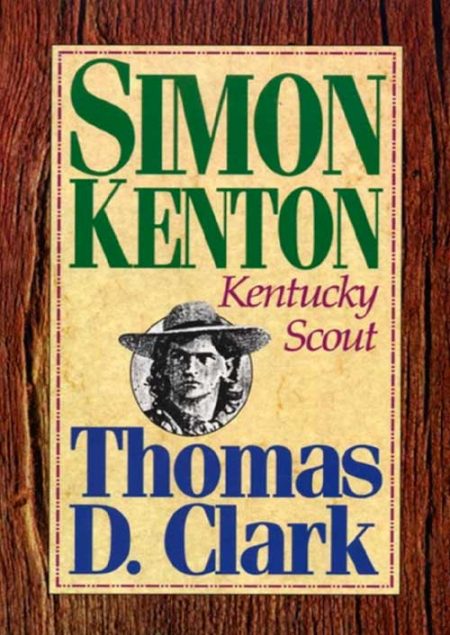 No part of American history is more exciting than the 1770s, when Europeans first settled west of the Appalachian mountains in the land now known as Kentucky. Simon Kenton’s story is synonymous with the story of that era. His life of excitement, adventure, and danger on the frontier made him one of the leading heroes of that time and, eventually a Kentucky legend. By Thomas D. Clark
No part of American history is more exciting than the 1770s, when Europeans first settled west of the Appalachian mountains in the land now known as Kentucky. Simon Kenton’s story is synonymous with the story of that era. His life of excitement, adventure, and danger on the frontier made him one of the leading heroes of that time and, eventually a Kentucky legend. By Thomas D. Clark -
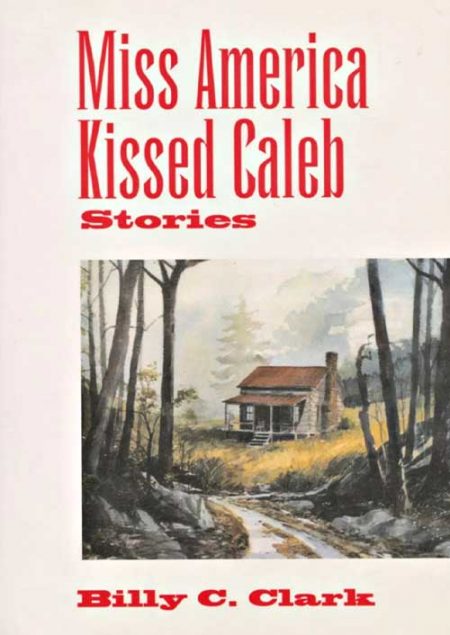 The mountain is a lonely place. Welcome to Sourwood, a small Kentucky town inhabited by men and women unique and yet eerily familiar. Among its joyful and tragic citizens we meet the crafty, spirited Caleb and his curious younger brother; Pearl, a suspected witch, and her sheltered daughter, Thanie; superstitious Eli; and the doomed orphan Girty. In Sourwood, the mountain is both a keeper of secrets and an imposing, isolating presence, shaping the lives of all who live in its shadow. Strong in both the voice and sensibilities of Appalachia, the stories in Miss America Kissed Caleb are at turns heartbreaking and hilarious. In the title story, young Caleb turns over his hard-earned dime to the war effort when he receives a coaxing kiss from Miss America, who sweeps into Sourwood by train, "pretty as a night moth." Caleb and his brother share in the thrills and uncertainties of growing up, making an accidental visit to a brothel in "Fourth of July" and taming a "high society" pooch in "The Jimson Dog." These stories invoke a place and a time that have long passed―a way of living nearly extinct―yet the beauty of the language and the truth revealed in the characters' everyday lives continue to resonate with modern readers. By Billy C. Clark
The mountain is a lonely place. Welcome to Sourwood, a small Kentucky town inhabited by men and women unique and yet eerily familiar. Among its joyful and tragic citizens we meet the crafty, spirited Caleb and his curious younger brother; Pearl, a suspected witch, and her sheltered daughter, Thanie; superstitious Eli; and the doomed orphan Girty. In Sourwood, the mountain is both a keeper of secrets and an imposing, isolating presence, shaping the lives of all who live in its shadow. Strong in both the voice and sensibilities of Appalachia, the stories in Miss America Kissed Caleb are at turns heartbreaking and hilarious. In the title story, young Caleb turns over his hard-earned dime to the war effort when he receives a coaxing kiss from Miss America, who sweeps into Sourwood by train, "pretty as a night moth." Caleb and his brother share in the thrills and uncertainties of growing up, making an accidental visit to a brothel in "Fourth of July" and taming a "high society" pooch in "The Jimson Dog." These stories invoke a place and a time that have long passed―a way of living nearly extinct―yet the beauty of the language and the truth revealed in the characters' everyday lives continue to resonate with modern readers. By Billy C. Clark -
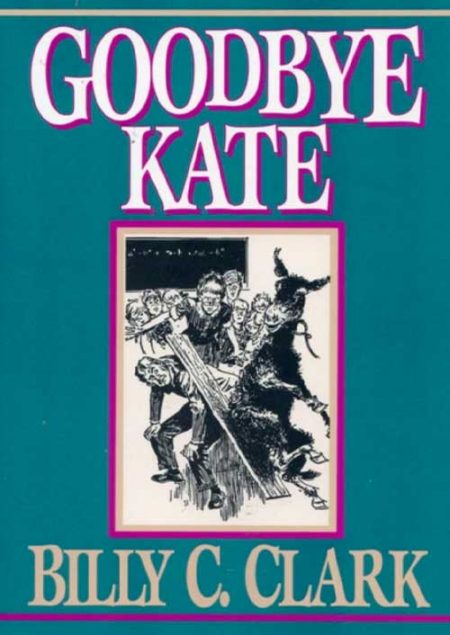 Goodbye Kate, Billy C. Clark’s sixth novel, is based in part on a mule he once owned. In the novel, Kate is found far back in the hills by a lonely country boy named Isaac Warfield. He lives close enough to Tatesburg, the nearest town, to walk to school there, but it’s a small town, and his home is isolated. Isaac has graduated from the little country school he has attended and the other members of his class will be moving on to another school, or to no school at all. He won’t have much contact with his friends anymore, and the nearest neighbor, a money-hungry man named Simm Johns, has no children and is “mean as a striped snake.” Isaac finds Kate when he goes back into the hills to pick some blackberries for his mother. The little mule is apparently as lonely as Isaac is, and she adopts him and follows him home – as far as the pine grove above the house, that is. By Billy C. Clark
Goodbye Kate, Billy C. Clark’s sixth novel, is based in part on a mule he once owned. In the novel, Kate is found far back in the hills by a lonely country boy named Isaac Warfield. He lives close enough to Tatesburg, the nearest town, to walk to school there, but it’s a small town, and his home is isolated. Isaac has graduated from the little country school he has attended and the other members of his class will be moving on to another school, or to no school at all. He won’t have much contact with his friends anymore, and the nearest neighbor, a money-hungry man named Simm Johns, has no children and is “mean as a striped snake.” Isaac finds Kate when he goes back into the hills to pick some blackberries for his mother. The little mule is apparently as lonely as Isaac is, and she adopts him and follows him home – as far as the pine grove above the house, that is. By Billy C. Clark -
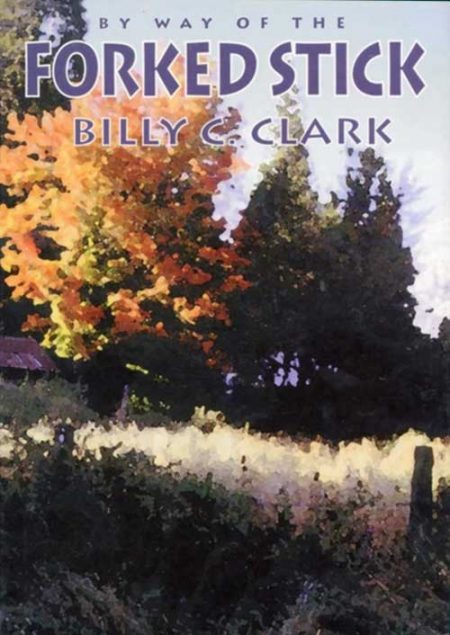 In the little Appalachian town of Sourwood, life at the end of the Great Depression may have been tough, but it was rich beyond compare. Building on a distinguished body of work celebrating and preserving mountain culture, renowned writer Billy C. Clark once again revisits his boyhood during a bygone era. By Way of the Forked Stick offers four fictional stories drawn from the author's childhood experiences of the 1930s—tales that vividly convey the down-home spirit of a lost way of life. By Billy C. Clark
In the little Appalachian town of Sourwood, life at the end of the Great Depression may have been tough, but it was rich beyond compare. Building on a distinguished body of work celebrating and preserving mountain culture, renowned writer Billy C. Clark once again revisits his boyhood during a bygone era. By Way of the Forked Stick offers four fictional stories drawn from the author's childhood experiences of the 1930s—tales that vividly convey the down-home spirit of a lost way of life. By Billy C. Clark -
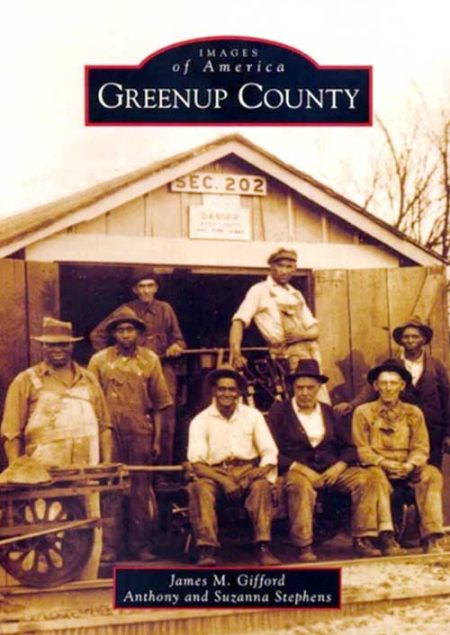 Greenup County, bordering the Ohio River in northeastern Kentucky, is rich in history and culture. Settlers first arrived in the mid-1700s and carved farms from hardwood forests. Lucy Virgin Downs, the first white child born west of the Alleghenies, lived in Greenup County, as did Jesse Boone, brother of Kentucky icon Daniel Boone. The 20th century brought industrialization and economic diversification to the historically agricultural area. Ashland Oil, a Fortune 500 company, maintained corporate headquarters in Greenup County. Two steel mills, a large rail yard, an excellent hospital, and a number of surface mines also provided employment to many people who continued to work their family farms, too. This economic progress was mirrored in every aspect of country life as education, health care, and recreation all improved dramatically. Today Greenup County’s history is appreciated by both longtime residence and cultural tourists. James M. Gifford serves as chief executive and senior editor of the Jesse Stuart Foundation, a regional publishing house. Dr. Gifford’s coauthors, Anthony and Suzanna Stephens, are eastern Kentuckians. The authors gathered photographs from dozens of personal and library collections.SOFTBACK By James M. Gifford, Anthony and Suzanna Stephens
Greenup County, bordering the Ohio River in northeastern Kentucky, is rich in history and culture. Settlers first arrived in the mid-1700s and carved farms from hardwood forests. Lucy Virgin Downs, the first white child born west of the Alleghenies, lived in Greenup County, as did Jesse Boone, brother of Kentucky icon Daniel Boone. The 20th century brought industrialization and economic diversification to the historically agricultural area. Ashland Oil, a Fortune 500 company, maintained corporate headquarters in Greenup County. Two steel mills, a large rail yard, an excellent hospital, and a number of surface mines also provided employment to many people who continued to work their family farms, too. This economic progress was mirrored in every aspect of country life as education, health care, and recreation all improved dramatically. Today Greenup County’s history is appreciated by both longtime residence and cultural tourists. James M. Gifford serves as chief executive and senior editor of the Jesse Stuart Foundation, a regional publishing house. Dr. Gifford’s coauthors, Anthony and Suzanna Stephens, are eastern Kentuckians. The authors gathered photographs from dozens of personal and library collections.SOFTBACK By James M. Gifford, Anthony and Suzanna Stephens -
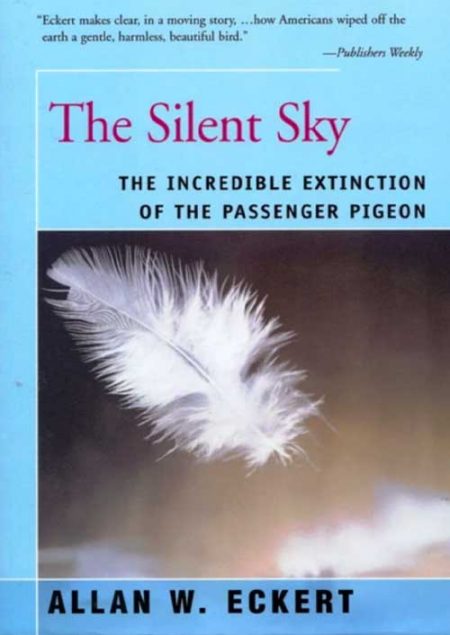 This nature novel, by following the hatching and lifetime experiences of the last know wild passenger pigeon, chronicles the life, natural history, and ultimate extinction of this species which was once the most abundant bird species in North America. The last wild bird was killed in 1900; the last captive bird died in 1914. By Allan Eckert
This nature novel, by following the hatching and lifetime experiences of the last know wild passenger pigeon, chronicles the life, natural history, and ultimate extinction of this species which was once the most abundant bird species in North America. The last wild bird was killed in 1900; the last captive bird died in 1914. By Allan Eckert -
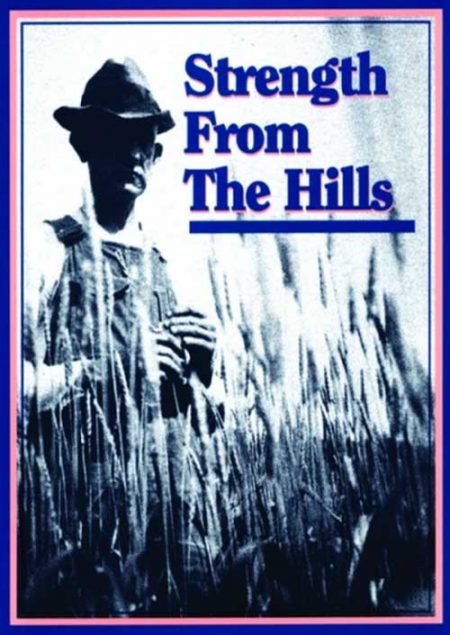 A biography of Jesse's father, Mitchell Stuart - a rural man who could not read or write. But Mick Stuart had learned the important things in life from the hills around him. He began his work before daylight, and stopped only when his family, his farm, and his animals were cared for. Jesse Stuart tells how his father taught him the unalterable values of right and wrong, love of family, and love of education. By Jesse Stuart
A biography of Jesse's father, Mitchell Stuart - a rural man who could not read or write. But Mick Stuart had learned the important things in life from the hills around him. He began his work before daylight, and stopped only when his family, his farm, and his animals were cared for. Jesse Stuart tells how his father taught him the unalterable values of right and wrong, love of family, and love of education. By Jesse Stuart -
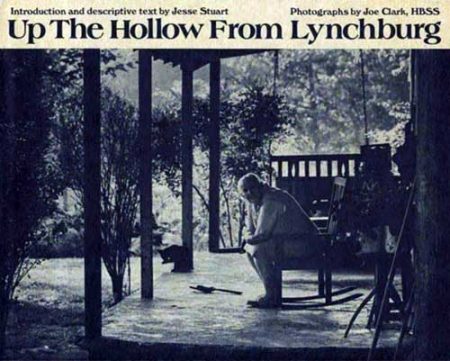 Jesse Stuart and Joe Clark's photographic essay of the town Lynchburg, located where the Blue Grass country meets the Cumberland Mountains of Tennessee. Known for the Jack Daniels distillery, the townspeople are loyal to their employer and to each other. But they are also "close-to-the-land" people who farm, raise livestock, and enjoy diversions which have nothing at all to do with the distillery. For the most part, it is their lives outside of working hours that Clark and Stuart have chosen to reflect. Photographs by Joe Clark Foreword by Jesse Stuart
Jesse Stuart and Joe Clark's photographic essay of the town Lynchburg, located where the Blue Grass country meets the Cumberland Mountains of Tennessee. Known for the Jack Daniels distillery, the townspeople are loyal to their employer and to each other. But they are also "close-to-the-land" people who farm, raise livestock, and enjoy diversions which have nothing at all to do with the distillery. For the most part, it is their lives outside of working hours that Clark and Stuart have chosen to reflect. Photographs by Joe Clark Foreword by Jesse Stuart -
 In twenty not-so-tall tales about rural politics in the South in rougher and tougher days, Jesse Stuart reminds us afresh that there's nothing new about political skull-duggery. The fact that he puts such labels as the Little Party and the Big Party or the Greenoughs and the Dinwiddies on the candidates doesn't mean they aren't the same old Republicans and Democrats you know so well-the wonderful folks who put Watergate on your TV screen. HARDBACK By Jesse Stuart
In twenty not-so-tall tales about rural politics in the South in rougher and tougher days, Jesse Stuart reminds us afresh that there's nothing new about political skull-duggery. The fact that he puts such labels as the Little Party and the Big Party or the Greenoughs and the Dinwiddies on the candidates doesn't mean they aren't the same old Republicans and Democrats you know so well-the wonderful folks who put Watergate on your TV screen. HARDBACK By Jesse Stuart -
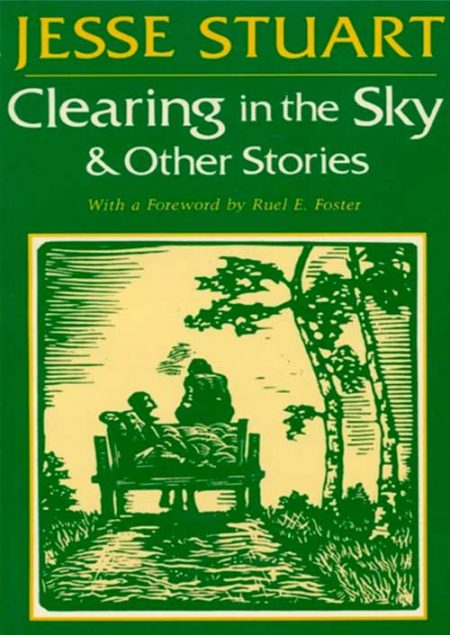 Here are twenty-one tales from Kentucky’s inimitable and beloved storyteller, Jesse Stuart. Full of high, rambunctious humor, quick-paced as a maple tree against an October hill—these stories are Stuart in his best form—the form that has made him one of most widely read authors in America. Read here about the man who coveted a steam shovel and stole it piece by piece, or about the celebrated eating contest between Sam Whiteapple and the game rooster, or about the hill farmer who wanted to clear and farm one last spot of new ground before he died. Although he has a sharp eye for human foibles and infirmities, Stuart never fails to write of his people with affection or to see that justice is done them. By Jesse Stuart
Here are twenty-one tales from Kentucky’s inimitable and beloved storyteller, Jesse Stuart. Full of high, rambunctious humor, quick-paced as a maple tree against an October hill—these stories are Stuart in his best form—the form that has made him one of most widely read authors in America. Read here about the man who coveted a steam shovel and stole it piece by piece, or about the celebrated eating contest between Sam Whiteapple and the game rooster, or about the hill farmer who wanted to clear and farm one last spot of new ground before he died. Although he has a sharp eye for human foibles and infirmities, Stuart never fails to write of his people with affection or to see that justice is done them. By Jesse Stuart -
Out of stock
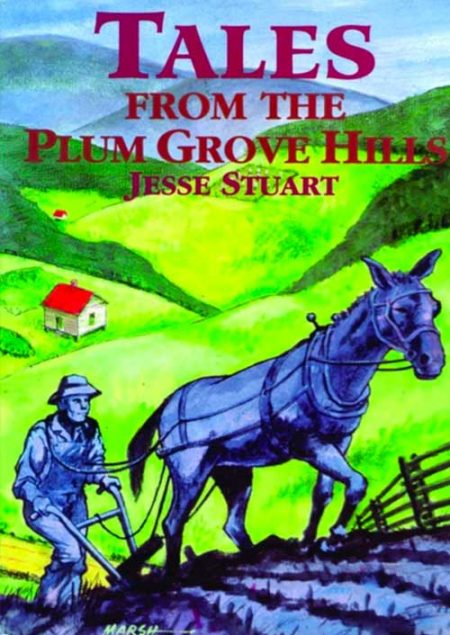 Jesse Stuart's honest, earthy writing about the southern hill folk he knows so well has made him one of America's foremost authors of fiction. Here are twenty of his best stories that spring up from the pungent soil of Kentucky, told in his plain but highly colorful style. Stories about the Stuart family and neighbors from his beloved W-Hollow, all packed with Kentucky characters of all sorts and sizes. SOFTBACK By Jesse Stuart
Jesse Stuart's honest, earthy writing about the southern hill folk he knows so well has made him one of America's foremost authors of fiction. Here are twenty of his best stories that spring up from the pungent soil of Kentucky, told in his plain but highly colorful style. Stories about the Stuart family and neighbors from his beloved W-Hollow, all packed with Kentucky characters of all sorts and sizes. SOFTBACK By Jesse Stuart -
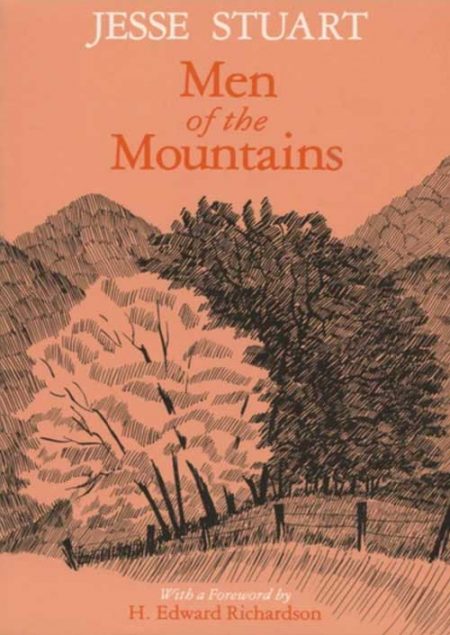 Written by a beloved American author who grew up in the foothills of the Appalachians, these twenty-one short stories explore the daily lives and activities of Kentucky mountaineers. Life, animate existence, absorbs Jesse Stuart. Never is it more vital than when juxtaposed with death, hence the contrasting motifs of life and death permeating his work. In this book, Stuart tells the stories of the hills and the men who live there. They “curse the mountains,” but love them too, he says. Existing in dimensions of real geography and elaborate imagination, Stuart moves easily between autobiography and fiction and often does not bother to distinguish one from the other. Greenup County, Kentucky blends into Greenwood County, and W-Hollow in both fiction and fact is subject to the proprietorship of the bard of Appalachia. By Jesse Stuart
Written by a beloved American author who grew up in the foothills of the Appalachians, these twenty-one short stories explore the daily lives and activities of Kentucky mountaineers. Life, animate existence, absorbs Jesse Stuart. Never is it more vital than when juxtaposed with death, hence the contrasting motifs of life and death permeating his work. In this book, Stuart tells the stories of the hills and the men who live there. They “curse the mountains,” but love them too, he says. Existing in dimensions of real geography and elaborate imagination, Stuart moves easily between autobiography and fiction and often does not bother to distinguish one from the other. Greenup County, Kentucky blends into Greenwood County, and W-Hollow in both fiction and fact is subject to the proprietorship of the bard of Appalachia. By Jesse Stuart -
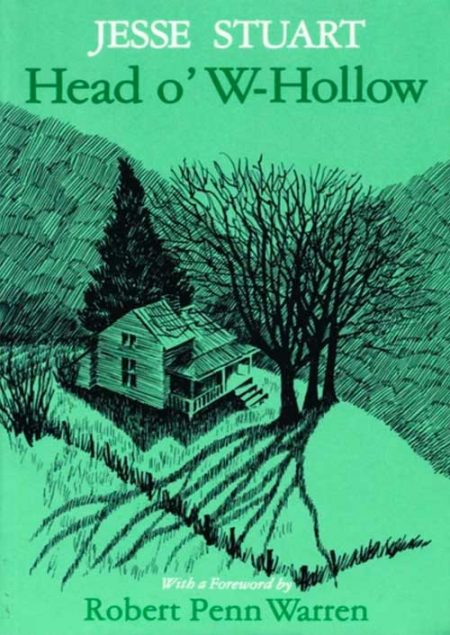 A unique and personal book bound for its own kind of immortality. Head o' W-Hollow has a permanent if modest historical value. Jesse Stuart has a "rattrap memory" for turns of speech, and he has given a socio-historical record of daily life in his remote world — now so much less remote and more changed. By Jesse Stuart REVIEWS "Stuart's first book of short stories remains haunting, powerful, and humorous." "A unique book, bound for its own kind of immortality." — Robert Penn Warren "The most honest writing that has ever been done about Kentucky mountain people." — The Nation
A unique and personal book bound for its own kind of immortality. Head o' W-Hollow has a permanent if modest historical value. Jesse Stuart has a "rattrap memory" for turns of speech, and he has given a socio-historical record of daily life in his remote world — now so much less remote and more changed. By Jesse Stuart REVIEWS "Stuart's first book of short stories remains haunting, powerful, and humorous." "A unique book, bound for its own kind of immortality." — Robert Penn Warren "The most honest writing that has ever been done about Kentucky mountain people." — The Nation -
 Presidents have been visiting Kentucky since 1819 arriving by horseback, carriage, train, steamboat, bus, and airplane. Presidential Visits to Kentucky: 1819-2017 details more than 120 occasions when the President of the United States came to the Commonwealth. It chronicles when the president came, why, where he went, and who he saw as he made history. HARDBACK VERSION By Wayne Onkst
Presidents have been visiting Kentucky since 1819 arriving by horseback, carriage, train, steamboat, bus, and airplane. Presidential Visits to Kentucky: 1819-2017 details more than 120 occasions when the President of the United States came to the Commonwealth. It chronicles when the president came, why, where he went, and who he saw as he made history. HARDBACK VERSION By Wayne Onkst -
 The book is more than just a dog story – with celebration of America’s melting pot democracy as a significant theme, it’s full of sparkling social satire, native lore, and mountain magic. A dog of many masters and mistresses, Jerry-B Boneyard is first befriended by Glenna Powderjay. When she goes away to college, he feels he’s not wanted and clears out to make a name for himself. Then follows a series of delightful adventures as Jerry-B tries to find his place in the world. He runs wild with a family of foxes, enjoys a romance with a pretty vixen, and even falls into temporary disgrace as a drunkard while a watchdog at a still. Mongrel Mettle is made-to-order for dog lovers everywhere. Taking in a much wider field than the usual Jesse Stuart book, it still retains the familiar charm for all who know and enjoy his work. This 80th anniversary edition of Mongrel Mettle: The Autobiography of a Dog by Jesse Stuart is made possible by generous support from Donna and Richard Sanders who dedicate the book to their grandchildren. This softback edition has 201 pages and features illustrations by Woodi Ishmael. SOFTBACK VERSION By Jesse Stuart
The book is more than just a dog story – with celebration of America’s melting pot democracy as a significant theme, it’s full of sparkling social satire, native lore, and mountain magic. A dog of many masters and mistresses, Jerry-B Boneyard is first befriended by Glenna Powderjay. When she goes away to college, he feels he’s not wanted and clears out to make a name for himself. Then follows a series of delightful adventures as Jerry-B tries to find his place in the world. He runs wild with a family of foxes, enjoys a romance with a pretty vixen, and even falls into temporary disgrace as a drunkard while a watchdog at a still. Mongrel Mettle is made-to-order for dog lovers everywhere. Taking in a much wider field than the usual Jesse Stuart book, it still retains the familiar charm for all who know and enjoy his work. This 80th anniversary edition of Mongrel Mettle: The Autobiography of a Dog by Jesse Stuart is made possible by generous support from Donna and Richard Sanders who dedicate the book to their grandchildren. This softback edition has 201 pages and features illustrations by Woodi Ishmael. SOFTBACK VERSION By Jesse Stuart -
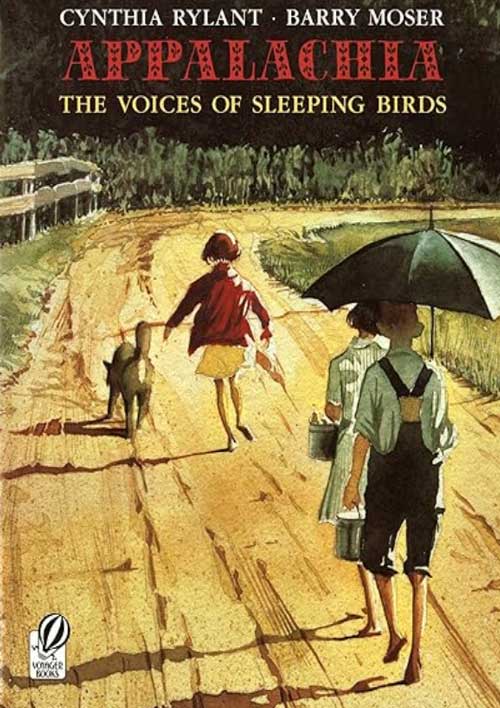 Lyrical prose and warm watercolor illustrations bring a "certain part of the country called Appalachia" alive for young readers. Two award-winning artists, forever touched by their experiences growing up in this unique landscape, have teamed to create a quietly powerful and beautifully crafted portrait of life in a timeless place. SOFTBACK VERSION By Cynthia Rylant
Lyrical prose and warm watercolor illustrations bring a "certain part of the country called Appalachia" alive for young readers. Two award-winning artists, forever touched by their experiences growing up in this unique landscape, have teamed to create a quietly powerful and beautifully crafted portrait of life in a timeless place. SOFTBACK VERSION By Cynthia Rylant


